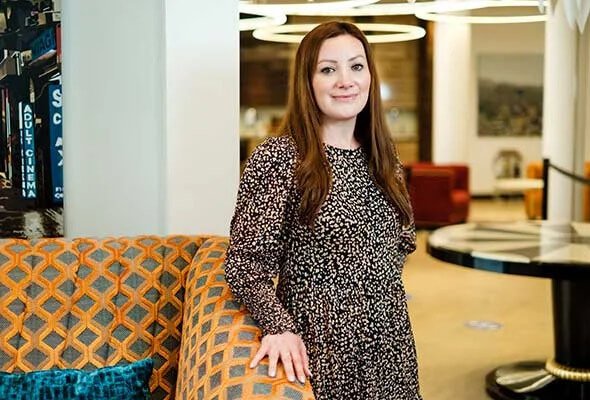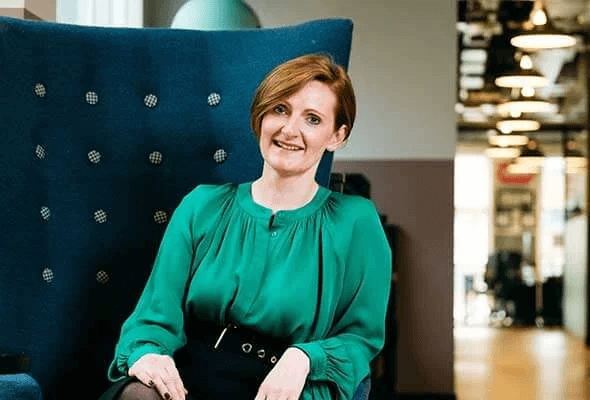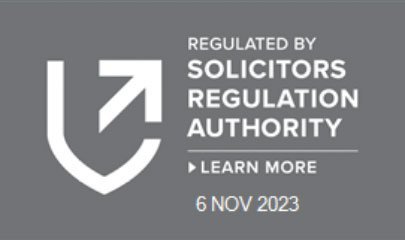A DAY IN THE LIFE OF
Aswini Puvitharan

Aswini Puvitharan
Consultant Solicitor
A day in the life of Aswini Puvitharan
Today we follow Aswini Puvitharan, a part-time Consultant Solicitor and qualified family mediator, who joined the firm in September.
Aswini highlights the circumstances in which a person might apply for a non-molestation order, the difference between mediation, arbitration and collaborative settlements to divorce, and the role of Pre-nuptial Agreements in a legal system in which they are not legally enforceable.
Aswini is returning to her career after having her second child and begins by sharing some of her hopes and fears, as well as her motivations for choosing this firm.

“I wasn’t planning to return to work so soon, but I met Louise and Sabrina at the beginning of summer and was immediately impressed by their modern and empowering approach. I was worried about returning to a traditional 9-5 environment, as not only can that be hard to manage with a young family, it is not always the most effective way of working. Now I can provide a flexible, quality service to my busy professional clients, without compromising the needs of my family.”
Aswini’s day begins at 6.30am when she gets up with her one year old. She gets ready for work before waking her son to get him ready for school. It’s only a short walk to school so she’s back at home by 8.30am and enjoys 45 mins playing on the floor with her daughter before the Nanny arrives to begin their handover.
At 9.45am, Aswini leaves the house and begins her 1-hour commute into London. She’s going straight to a networking event in Soho and listens to music while she mentally transitions from Mum to Solicitor mode. Louise, one of our founding directors, joins Aswini at the event which has been held for a mixed group of around 40 people.
“It has been a while since I’ve attended anything like this and I was feeling a little nervous so it’s good to have Louise here as my mentor.”
After an hour, the pair have spoken to most people at the event, so they walk to the office via the local sandwich shop and chat about how Aswini is settling into life at the firm.
“I am enjoying being back at work again and having a work-life balance. The whole team have been great at helping me ease back into work and it helps that both Louise and Sabrina understand what it is like to return to practice after having children.”
They arrive at the office at 12.15pm and say quick hellos to everyone who is in today, before sitting down to check their emails.
At 12.30pm, Aswini joins Louise again to meet a client who is going through a particularly difficult divorce.
“There was coercive control and violence in the relationship so she has a non-molestation order against her husband, which should have ended all contact between them. However, he seems to be using these proceedings to try to intimidate her and she is finding it incredibly distressing. In such cases we would always ensure that the client is regularly updated so that they know what is happening and are in control of the situation.”
On her return to the office, Aswini calls a new client who is keen to achieve an amicable divorce to discuss the options for reaching an out-of-court settlement.
“There are three routes that a client can take. In mediation the couple attend a series of meetings with an independent mediator at which they will attempt to resolve issues relating to their children or finances with the assistance of the mediator.
Another route is collaborative law where the couple work with their respective lawyers with input from other professionals, for example accountants, counsellors etc to negotiate a settlement. This usually concludes with a round-table meeting with some of the advisors, at which they will attempt to finalise the agreement.
Family arbitration offers an alternative to a courtroom for couples who need a third party to make the final decision in relation to financial and/or children’s issues. It is a more flexible and informal environment and offers people the opportunity of resolving disputes more quickly.
In my opinion, if a couple remain on good terms and are eager to avoid hostility and costs then mediation would be the best way forward.”
At 2pm, Aswini meets a new client who would like to put a pre-nuptial agreement in place to protect his business in the event of relationship breakdown.
“Some people find it difficult to consider the end of a relationship at the beginning, but my client has been married before so he is realistic about the possibility and wants to protect his business, as well as avoid unnecessary litigation should the relationship fail.
A pre-nuptial agreement is most relevant to those who bring the greatest wealth into the relationship or anyone with inherited assets they wish to keep within the family line. Although they are not legally enforceable in England, judges will often uphold them if certain precautionary steps are taken, for example they must be made more than 6 weeks before the date of the wedding. If an agreement is signed any later a court could well rule that it was drawn up while one of the parties was under duress. If that was the case, then a post-nuptial agreement, signed after the wedding, would be more appropriate.”
After the meeting, Aswini debriefs Louise and Ayse, one of our lovely Paralegals, before leaving to collect her son from school.
She makes the most of this 121 time with him, taking the scenic route home and chatting about his day. Arriving home at 4.30pm, Aswini scoops up her daughter and spends some time playing with both children before preparing their dinner.
Once the children are fed, bathed and in bed, Aswini responds to a messages from her trainer confirming her session for the next day.
“On recommendation of a friend, I tried boxing to get back in shape after having my son. I’ve trained 2 or 3 times a week ever since and I love it. Not only am I stronger than ever, it’s the best stress relief I’ve ever experienced!”
Aswini then logs on to her laptop and works until her husband arrives home around 8pm. He goes upstairs to kiss the sleeping children, before sitting down to eat dinner and catch up on the day.
“It’s not unusual for my husband to get home after the children have gone to bed, which makes me feel even more privileged to be able to choose how and when I work. It does mean that I have quite a lot on my plate, but motherhood has unlocked another level in me and I am far more productive and efficient when I am working so that I can concentrate on spending quality time with my kids when I’m not.”
Get To Know






About Us
As a specialist firm, we focus on all areas of family law and legal matters that affect private wealth.

Explore
Contact
Contact
info@allardbailey.com
(+44) 020 7993 2936
Head Office
3 Waterhouse Square,
138 Holborn, London, EC1N 2SW
Hertford Office
114-116 Fore Street, Hertford,
SG14 1AJ
Allard Bailey Family Law is a practice name of Allard Bailey Family Law Ltd, a company registered in England and Wales (no 10359344) and authorised by the Solicitors Regulation Authority (no 634271)
© 2024 Allard Bailey Family• All Rights Reserved

